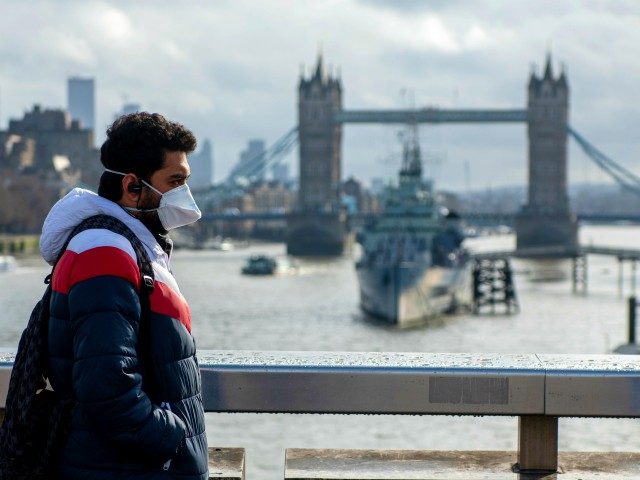The Emergency Coronavirus Bill is set to be passed in the House of Commons without a vote in the coming days and could result in citizens being detained by police and even placed in isolation facilities for refusing to be tested for COVID-19.
In a document released by the Department of Health and Social Care on Tuesday, the government announced that it would be “strengthening the quarantine powers of police and immigration officers”.
The measures will be time-limited for up to two years and will only be enacted “when strictly necessary”, the government said, with The Times reporting that the bill will likely be passed in the lower house without a formal vote but “on the nod” with the legislation gaining Royal Assent before the houses rise for Easter next week.
–Detaining those who refuse testing, restrict gatherings–
“The bill will enable the police and immigration officers to detain a person, for a limited period, who is, or may be, infectious and to take them to a suitable place to enable screening and assessment,” the document said. Police may then be able to place those individuals in “appropriate isolation facilities to protect public health”.
While Prime Minister Boris Johnson earlier this week recommended that Britons avoid mass social gatherings, the bill would “enable the government to restrict or prohibit events and gatherings during the pandemic in any place” including in vehicles, trains, aircraft, or other vessels and even “any offshore installation”. Authorities will also be handed the power to “close premises”.
–Closing borders in response to staff shortages–
The UK’s external borders may also be closed with the suspension of Border Force operations. But, it only appears, if sickness affects the ability of Border Force staff to adequately police borders — not to halt migration from high-risk countries. The government said:
“[The bill will] enable the Home Secretary to request that port and airport operators temporarily close and suspend operations if Border Force staff shortages result in a real and significant threat to the UK’s border security.
“This is to ensure the UK can maintain adequate border security throughout the pandemic and protect the public from the threat of criminality or importation of prohibited items that could result from an inadequately controlled border.
“This would only be used in extremis, where necessary and proportionate, and any direction will be kept to the minimum period necessary to maintain the security of the UK border.”
Meanwhile, even the pro-open borders European Union has recommended that all member states lock down the bloc’s external borders to all but its own citizens, guest workers, and medics and scientists.
–Streamlining the “death management system”–
In a section with the sobering heading, “Managing the deceased with respect and dignity”, the government’s bill will allow measures that will enable “the death management system to deal with increased demand for its services”. Such measures include expanding the list of people who can register a death and for local authorities to order funeral directors, mortuary owners, and crematoria owners “to streamline the death management process” if the number of fatalities exceeds capacity.
“This may include an increase in the operating times of crematoriums, directing companies to use their vehicles to move bodies, or directing others not directly involved in the funeral sector, to provide necessary support,” it said.
In Italy, the viral epicentre for the whole of Europe, the mayor of Bergamo revealed this week that the city cannot cremate locals’ remains fast enough.
Other measures outlined include either closing schools or even forcing them to stay open, as well as postponing local, mayoral, and Police and Crime Commissioner elections. Recently retired medics and social care workers will be allowed to return to work and the law will allow for the emergency registration of students who are near the end of their training to get as many staff into the NHS as possible. For employees affected by sickness or quarantine, Statutory Sick Pay will be available from day one of absence, rather than the usual three.
Health and Social Care Secretary Matt Hancock said in a statement: “The new measures we will be introducing in the Emergency Coronavirus Bill this week will only be used when it is absolutely necessary and must be timed to maximise their effectiveness, but crucially they give the government the powers it needs to protect lives.”
Countries including Italy and France have gone into lockdown, forcing citizens into isolation to halt the spread of the virus, while Austria has banned gatherings of five people or more. The Johnson administration has been criticised for its response to the outbreak of the China-origin, while a leaked document revealed that as many as 80 per cent of Britons could be infected, resulting in 7.9 million hospitalisations.
French Prime Minister Edouard Philippe said on Tuesday that France may consider closing the border with the United Kingdom unless it enacts stricter measures, saying: “It goes without saying that if neighbouring states such as the United Kingdom spend too long continuing to avoid these containment measures, then we would have difficulty accepting British nationals who would move freely in their own country and then come to our country.”

COMMENTS
Please let us know if you're having issues with commenting.